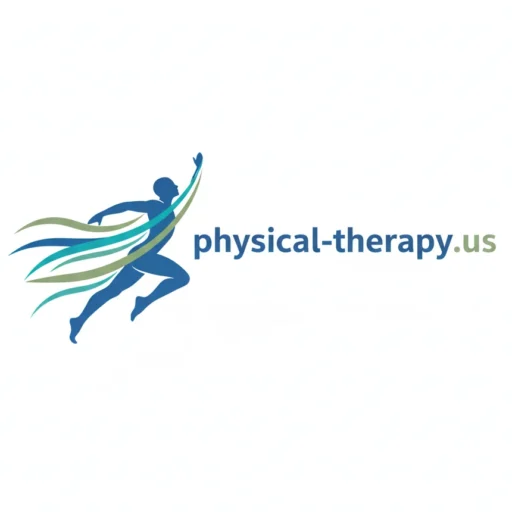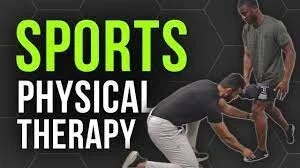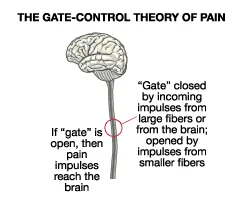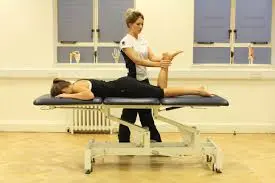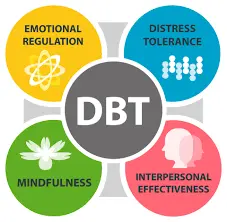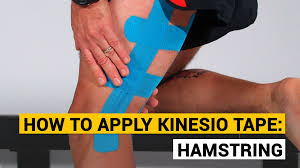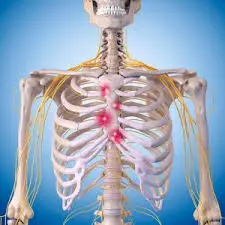Sports Physical Therapy
Sports physical therapy is a specialized branch of physical therapy that focuses on the prevention, assessment, treatment, and rehabilitation of injuries related to sports and exercise. It is a dynamic field that caters to athletes of all levels, from recreational enthusiasts to elite professionals.
Sports physical therapists play a crucial role in optimizing athletic performance, promoting injury prevention, and facilitating recovery from sports-related injuries.
What is a Sports Physical Therapy?
Across all age groups and skill levels, sports and exercise physical therapy are involved in the prevention and treatment of injuries caused by participation in sports and exercise. These specialized physical therapists offer evidence-based recommendations for safe exercise and sports participation in sports physical therapy.
They also promote an active lifestyle as a means of assisting individuals in preserving and improving their standard of living. Moreover, sports and exercise physical therapists are extremely important in assisting athletes of all ages and skill levels to improve their performance.
In addition to helping athletes perform better through injury prevention, maintenance, and recovery techniques, sports physiotherapists’ primary responsibilities also involve treating injuries and providing rehabilitation. based on Grant et al.’s synopsis of the profession of sports physical therapy.
What does sports Physical Therapy do?
Sports physical therapy is defined by the New Zealand Sports Physical Therapy Organization as:
A recognized authority with outstanding skill in advising, adjusting training and recovery plans, and promoting participation in safe physical activity to prevent injuries in sports physical therapy.
regaining optimal function and helping athletes of all ages and skill levels perform better in sports while upholding the highest standards of moral and professional conduct. Specialized physical therapist in sports and exercise work in a range of environments.
Many work in clinics or private practices with athletes who participate in sports as hobbies. They can also go to training sessions and participate in social and club sports.
Exercise physiotherapists and sports physiotherapists frequently work with elite individual athletes or teams in competitive and professional sports. They collaborate with other medical professionals, coaches, strength and conditioning staff, and other support personnel.
In order to manage physiotherapy services, injury prevention, rehabilitation, and injury surveillance programs, sports and exercise physiotherapists are also actively involved in a variety of sporting organizations.
Roles and Competency Areas in Sports and Exercise Physiotherapy
In order to prevent injuries, restore optimal function, and help athletes of all ages and abilities perform better in sports.
Ashton outlines the advanced competencies of the sports physiotherapist in the areas of promoting safe physical activity participation, offering advice, and adapting rehabilitation and training interventions.
All of these activities are done while upholding the highest standards of professional and ethical practice.
The physiotherapist’s job description is not fixed and may rely on:
- The sport in which they participate
- Their particular function within the group
- The sport’s performance level, whether amateur or professional, local or worldwide.
“In societies that aim to encourage physical activity and competitive sports, sports physiotherapy is becoming more and more popular,” the International Federation of Sports Physical Therapy (IFSPT) states.”
“Effective professional behavior and the integration of specific knowledge, skills, and attitudes for the context of practice as a sports physiotherapist” is what the Sports Physiotherapy for All (SPA) manual describes.
The Sports Physical Therapy for All project established 11 competencies that are required by sports and exercise physical therapists. These competencies are accompanied by a set of particular abilities or criteria that must be maintained.
These criteria and competencies pertain to the different overlapping functions that physiotherapists for sports and exercise play. The many capacities and functions can be.
Supervisor of the patient or client:
preventing injuries: Exercise and sports physiotherapists evaluate the risk of injury related to engaging in a particular sport or physical activity. They have the tools necessary to educate and teach players, coaches, and other interdisciplinary team members so that the incidence and recurrence of particular injuries are decreased.
Quick action: Exercise and sports physiotherapists are qualified to treat acute injuries or illnesses in a variety of settings, including practice or competition.
Rehabilitation: To evaluate and diagnose injuries related to sports, sports, and exercise physiotherapists use clinical reasoning and therapeutic abilities.
Additionally, they possess the knowledge and abilities to plan, carry out, assess, and adjust evidence-based therapies that enable a safe return to the athlete’s peak performance in their particular sport or physical activity.
Performance enhancement: Within a multidisciplinary team approach, sports and exercise physiotherapists can offer advice or intervene to optimize performance in a particular sport. They also evaluate the athlete’s physical and performance-related profile.
Advisor
Encouragement of a safe, active lifestyle: Sports and exercise physiotherapists are capable of collaborating with other medical specialists in a multidisciplinary team setting to encourage people of all abilities to engage in safe physical activity and sports.
It is anticipated that they will offer evidence-based guidance on the best sport or activity for a given person as well as suggestions for reducing the chance of injury and enhancing health.
Encouragement of anti-doping and fair play: Exercise and sports physiotherapists engage in safe, ethical, and professional sports practices and encourage others to do the same. They fervently support both their obligation of care to the athlete and fair play. The International Sports Physiotherapy Code of Conduct on Doping is followed by them.
Lifelong learning: By using critical, introspective, and evidence-based practice methods, sports and exercise physiotherapists uphold and elevate their clinical standards. They work closely with other professionals and participate in an ongoing process of learning and teaching throughout their careers.
Management and professionalism: Physiotherapists who specialize in sports and exercise are skilled in staff, resource, and time management. They accomplish this in a morally, legally, and professionally sound manner. They also encourage and assist excellence in professional development.
Pioneer
Participation in research: Physiotherapists for sports and exercise are knowledgeable and assess their methods in light of fresh discoveries. They pinpoint research concerns and are engaged in studies that tackle these issues on a number of fronts.
Sharing of best practices: Through a variety of channels, including team communications, conferences, meetings, special interest groups, research collaborations, and publications like reports, journals, promotional documents, newsletters, and the internet, sports, and exercise physiotherapists inform other professionals about new findings and research.
Using innovation to expand practice: Exercise and sports physiotherapists support and foster the use of fresh ideas and expertise in multidisciplinary team practices and decision-making processes. They also affect the paths taken by future innovation and research.
Technical and Non-Technical Competencies
Ian Gatt is a sports physical therapist who specializes in professional and Olympic sports. He divides competencies into two categories: technical and non-technical.
Developing Sports Physical Therapy Expertise
As part of lifelong learning, sports physiotherapy specialization can help one become an expert in sports. Specialization is defined by Tawiah et al. as possessing thorough comprehension, ability, and competence in a specific field of work.
The International Federation of Sports Physiotherapy (IFSPT) expert recognition method is used by member organizations to certify individuals.
Gaining expertise in sports physiotherapy is a gradual process that often begins with a formal university education in physiotherapy, followed by clinical practice and informal learning to specialize in the field.
A model of the decision-making and skill-development process used by physiotherapists to progress from novice to expert was created by Phillips and Paterson. Learning is categorized using this model.
- Technical (based on science and expertise)
- Innovative (adjusting methods and decision-making to clinical settings)
- Contextual (self-awareness and the capacity to modify actions in light of broader situational and cultural contexts)
The Function of Exercise Physiologists and Sports Physicians in International and Elite Sports
Physiotherapy is now a vital component of the sports medical team and plays a big role in treating injuries sustained during international competitions. Physiotherapists made up the largest professional group attending the London 2012 Olympic Games.
In international and elite sports (as well as all other levels of sport, for that matter) the sports physiotherapist’s primary responsibility is to treat and rehabilitate injuries and to promote performance through measures for maintaining, recovering from, and preventing injuries.
A sports physiotherapist’s role in helping players during competition or important events is generally seen to be that of a “provider of treatment interventions related to specific injuries.” Recent research shows that sports physiotherapists are helping athletes who are not injured far more than they used to.
Athletes who were not injured at the London 2012 Olympic Games visited physiotherapy services. One plausible theory for this could be that Supporting physical function and aiding in recovery through physiotherapy sessions is one way to help athletes perform better.
It was also clear that muscular injuries were the most frequent type of injury among sportsmen, and that they needed follow-up visits for the same illness or injury.
The requirement for musculoskeletal system maintenance, injury prevention techniques, and recovery support was also highlighted in the non-injury-related physiotherapy sessions and interactions.
Sports physiotherapists who work with professional or international athletes are required by Grant et al. to manage pre-existing problems on an ongoing basis. The most frequent cause of physiotherapy visits among athletes was found to be overuse injuries (44%).
It is clear that physiotherapists play a huge role in the world of international sport, one that extends far beyond treating injuries and recovering from them.
This position includes providing methods for injury prevention, supportive therapy, and assistance with musculoskeletal maintenance and rehabilitation.
Additionally, sports physiotherapists are in a unique position to assume leadership responsibilities. Sports physiotherapists are able to oversee the healthcare of athletes in a variety of sporting codes due to the breadth of their skill set.
Which includes knowledge of acute care management, exercise, evidence-based approaches to injury prevention and treatment, as well as general strength and conditioning concepts. The considerable amount of time sports physiotherapists spend working one-on-one with the players is another advantage.
Athletes’ Views on the Sports and Exercise Physiotherapist’s Function
“What does a sports physiotherapist do?”
Athletes have a firm concept of the work of a sports physiotherapist, albeit often incompletely. They consider the primary objective of a sports physiotherapist to be injury care. Four topics came up in athlete interviews regarding the function of the sports physiotherapist.
- therapy for injuries
- preventing injuries
- Rehabilitating
- Improvement of performance
What should a sports physiotherapist not do?
Breach of medical confidentiality emphasizes how crucial trust is between the sports physiotherapist and the athlete.
Become complacent in their role; just as athletes expect their sports physiotherapists to continuously improve their skills, these professionals should also be seeking for professional growth.
Qualities of a Sports Physiotherapist
Athletes stated that having these characteristics is crucial for sports physiotherapists:
- Maintaining a professional demeanor
- Positive traits in a person
- Being reachable Effective communication abilities
- Show a genuine interest in the athletes they work with. Be receptive to the athletes’ opinions about their management and the employment of other practitioners.
Sports physical therapists must be highly skilled, persistent, patient, cognizant of the psychological and emotional strains associated with their profession, and able to refer patients to appropriate resources. communicator with athletes and coaching staff.”
Athletes dislike the following characteristics of sports physiotherapists:
- Poor personal attributes
- Being distant
- Being uncooperative in a group
Expectations of athletes regarding physical therapy in the treatment of sports injuries
A cross-sectional qualitative study by Quartey et al. investigated players’ expectations regarding physical therapy in the context of sports injury rehabilitation.
It was demonstrated that athletes had high expectations for physiotherapy’s role in the recovery of sports injuries and that these expectations were significantly correlated with the athletes’ level of competitiveness. Investigated were many aspects related to athletes’ aspirations.
- Acceptance,
- Motivation,
- Attractiveness,
- Directionality,
- Empathy,
- Confrontation,
- Nurturing,
- Genuineness,
- Openness,
- Outcome
The study’s athletes had high expectations for each of these elements. Nonetheless, authenticity, nurturing, and directiveness had the most effects on athletes’ expectations. Accurate expectations are associated with these elements.
Athletes anticipate a high degree of professionalism from their physiotherapists, as well as a comprehensive explanation of their injury and the results of their rehabilitation.
Physiotherapists should give precise instructions for rehabilitation, but they should also be kind and supportive during the process, and they should always be sincere and truthful.
Achieving sporting success
“How may sports physical therapy assist you in reaching your athletic objectives?”
Athletes’ answers, when posed this question, once more mostly focused on injuries:
- aid in the healing process after injuries
- Avoid accidents
But there was also a discernible shift in viewpoint. Athletes valued sports physiotherapists’ assistance in enabling them to exercise for longer periods of time and more intensely without suffering injuries, but they also recognized their importance in managing and avoiding injuries.
Treatment methods used in physiotherapy
The following methods of treatment are seen to be helpful by athletes.
- Activation
- Prescription
- exercises
- Massage Manipulation
- Using
- Acupuncture Taping
This, however, partly depends on how much the athletes are exposed to the variety of treatments. Athletes rely on the physiotherapist to handle any injury-related concerns because they view the physiotherapist as the subject matter expert.
The Team for Sports Medicine
We have now looked at what it means to be a sports physiotherapist, what skills are needed, and how we integrate into the larger Sports Medicine Team. Depending on the kind of sports environment you operate in, this can change.
Whether providing support during practice or competition, you can be the only sports medicine specialist interacting directly with the player and team in many situations when you work with your local sports teams.
You are faced with making decisions on your own on your departure from the field, how to treat your injuries, and when to return to play. Working with professional sports teams and national teams might differ greatly in many ways.
In certain situations, you can be the lone sports medicine specialist serving a much bigger network of teams. Because sports medicine is such a broad field, it is ideal for a multidisciplinary team of experts to practice it.
Each of these experts has a unique set of skills that enable them to not only give the athlete the best care possible but also advance the expertise of their peers. The environment determines which sports medicine team is best.
As previously indicated, a family doctor or physiotherapist working alone may make up the sports medical team in conjunction with your neighborhood sports club.
The sports medicine team at professional sports teams or large events like the Olympics may include:
- family doctor
- Physical therapist
- Sports medicine specialist
- a masseuse
- Athletic coach
- Surgeon for orthopaedics
- radiology
- Psychologist
- Podiatry
- Nutritionist/dietitian
- Coach
- exercise physiologist
- Fitness consultant
- Scientist in sports
- Biokinetics
The Sports Medicine Model
In the conventional medical model, a doctor serves as the first point of contact and refers patients to other medical and paramedical professionals as needed. This is not how the sports medicine model works.
The athlete’s primary point of contact can be with a doctor, but it can also be with a physiotherapist, massage therapist, or trainer. Athletes will rather see the doctor with whom they are most comfortable or with whom they have the strongest rapport.
It is therefore crucial that each and every member of the multidisciplinary sports medical team knows its own limitations and capabilities.
It also knows the other members’ skills and can refer to them to give the athlete the best care possible. Never forget that the athlete is at the center of both management and recovery.
The Coach, The Athlete, and The Physiotherapist
The athlete and the sports physiotherapist must get along well. There must be a sense of mutual confidence and trust. This implies that the athlete will think the physiotherapist is someone they can trust with their secrets, and the physiotherapist will think the athlete would heed their recommendations.
As the person in charge of the athlete’s preparation and performance, the coach must be included in all medical decision-making.
Regrettably, there are coaches who harbor mistrust toward healthcare experts in the sports industry and who believe—whether correctly or incorrectly—that the primary function of these specialists is to prevent athletes from training or competing.
It is imperative that coaches comprehend that the primary objective of a sports physiotherapist is to optimize and enhance the athlete’s health and performance.
Athlete compliance will actually rise if the coach is included in the decision-making process and is given clear explanations for the recommendations.
In addition to being a useful supervisor for the suggested course of treatment or rehabilitation, the coach may also be able to help identify potential injury causes through conversations.
Everyone benefits when there is a positive working relationship between the sports physiotherapist and the coach. Coaches may seek assistance for small issues as a result of having a deeper awareness of what sports physiotherapists perform, which can help prevent injuries.
The coach can impart knowledge to the sports physiotherapist, who will then be more equipped to grasp the demands of the sport and help institute injury prevention strategies.
FAQ
What is a sports physiotherapist?
A qualified specialist who evaluates and treats injuries related to sports is a sports physiotherapist. After an accident, physiotherapy aids in a person’s recovery of movement and strength in certain body parts. In addition to preventing long-term harm and recurrent issues, physical therapy can assist a patient in achieving pain relief.
Is sports physiotherapy a good career?
The need for sports physical treatment is great. The field of sports physiotherapy pays well. The average pay for a fresh graduate is over five lacs. The cost of the courses is somewhat considerable.
What is the scope of sports physiotherapy?
Exercise and Sports Across all age groups and skill levels, physiotherapists are involved in the prevention and treatment of injuries brought on by sports and exercise. These specialized physiotherapists offer evidence-based recommendations for safe exercise and sport participation.
Can a Physiotherapist study sports medicine?
In general, graduates of IIMT University’s Master of Physiotherapy in Sports Medicine program will be qualified to pursue a variety of employment options in the sports physiotherapy sector. both nationally and internationally.
Is sports physiotherapy a good career?
Demand is High for Sports Physiotherapy. Salary levels are High for Sports Physiotherapy. The average compensation for new hires is greater than five lacs. The course charges high fees.
What level is best for sports Physiotherapy?
A grade. For admission to the best colleges, you must have taken at least one science-based course, such as chemistry, physics, human biology, or biology. Sports science or physical education may be accepted by certain colleges. General studies and critical thinking are not appropriate.
Can Physiotherapists do sports medicine?
As members of the multidisciplinary team, physiotherapists play a crucial role in athlete care. Depending on the particular sports environment, they can be the only sports medicine specialist interacting directly with the player or team.
